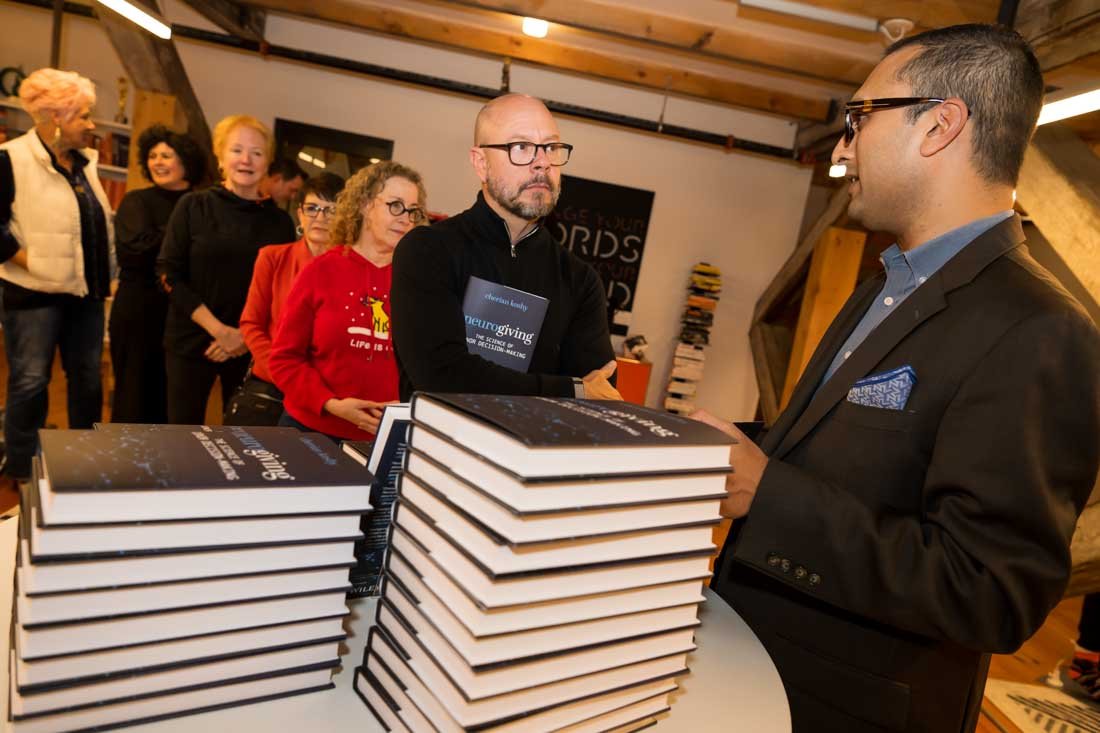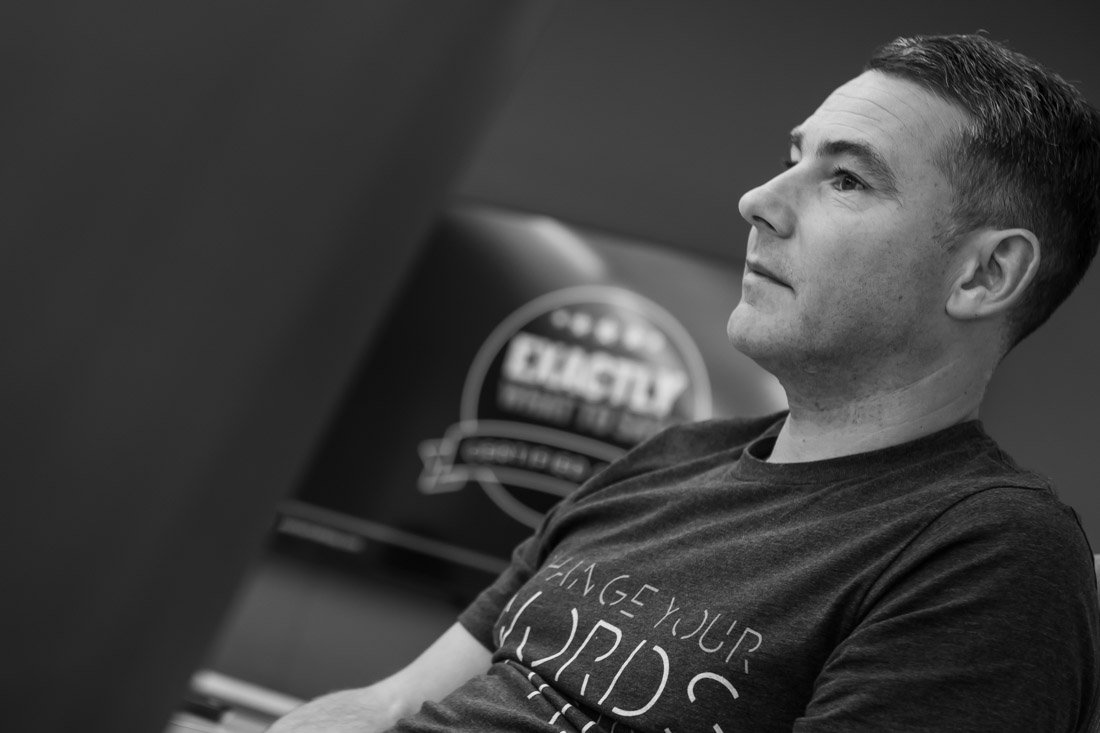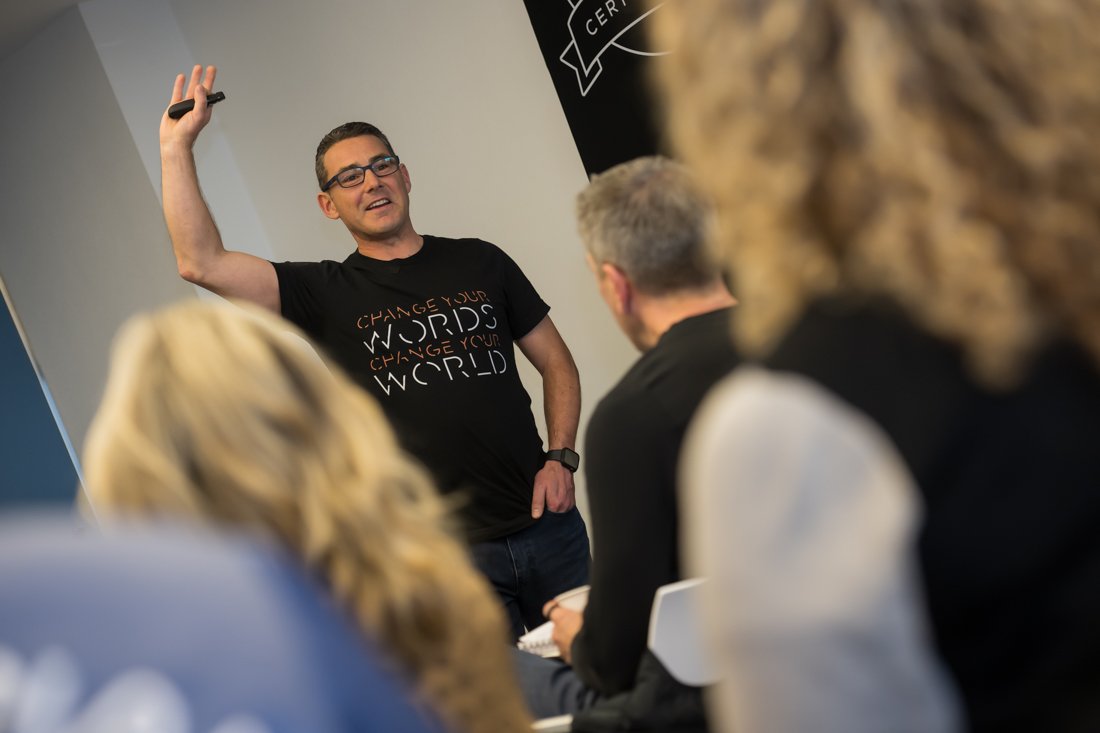Nick Pitt is a third-generation Hearing Specialist, Coach, and EWTS Certified Guide. He has a background in education and experiential learning and likes to create an atmosphere that welcomes collective conversation and decision-making.
You have to make decisions every single day, but occasionally, these choices can become challenging, and it’s difficult to know which direction you should move in. You might even need to help others make difficult decisions, whether that be for your job or your personal life.
There’s nothing worse than being stuck in indecision, but how can you be more decisive or help those around you be more decisive?
Nick recently hosted an EWTS Critical Conversations Webinar focusing on how to help others make challenging decisions.
If you’ve got an important choice to make, or you want to help those around you make one, this blog could help.
It catalogs practical methods that you can use to not only help you make decisions but also helps guide others to make challenging ones, too.
Everybody Is In The Business Of Selling Something
Helping people make challenging decisions is a lot like being a salesperson, but most people associate sales with negativity.
When you think about a stereotypical salesperson, what words come to your mind?
Stereotypes might include pushy, smarmy, aggressive, and cohesive. If the person you’re having a Critical Conversation with thinks this about you, you’re not going to get far in helping them.
Nick also regarded sales a little negatively; he never thought he would end up as a salesperson.
After leaving university with a degree in education and risk management, Nick first worked as a teacher, but following 10 years of teaching, he joined the family business and learned a couple of very important points.
- Being a salesperson is not a bad thing
- A salesperson is essentially a problem solver
If you’re solving a problem, are you really selling?
Could it be possible that it’s merely the choice of words used to describe selling that results in the negative connotation?
The Impact Of Word Choice
The words you use impact your view on any given situation. Words such as sales, chores, cost, and problems all conjure up certain emotions.
But what happens when you start putting more thought into what you’re actually saying?
How can you take negative situations and improve them?
Nick likes to carefully consider the language that he uses, both professionally and personally. He likes to swap out certain words that he knows have negative connotations and replace them with something more positive.
Here are some of his Simple Swaps:
- Cost can become Investment - Talking about your investment implies that you are getting more out of what you’re putting in. The price of something doesn’t always prove its worth.
- Problems can become Challenges - no one likes a problem, but a challenge can be met and overcome.
- Implying that you are powerless to alter a situation can create doubt about your true capabilities. Instead of being powerless to make a decision, let’s try seeking clarity,
- Avoid saying phrases like honestly and trust me - saying this inserts doubts into a situation when you’re trying to do the opposite.
What Simple Swaps could you use in your day-to-day language?
Can Telling Your Story Help?
Behind every challenging decision to be made is a story. It doesn’t matter who it’s happening to, or what is happening; a series of unique events has led to this moment. If you want to seek clarity on the situation, you will need to hear the story.
What has led to this decision? What factors are affecting it?
Curiosity will help to establish understanding and, crucially, the context behind it.
Why has the challenge occurred? What is the end goal? What are your aspirations? Is it personal or professional?
The story is super important to understand because only then can you truly help.
Recently, Nick has had to make challenging decisions both in his professional and personal life.
The Work Challenge
Nick is a partner with his brother in their family’s audiology business. The practice was started over 60 years ago by his grandfather. It has successfully provided 3 generations of the Pitt family, but recently, they were faced with the dilemma of selling the business and moving on to something new.
He made a list of key decision points, which included the following points:
- Over 60 years of a family-run business
- The emotional and historical baggage that comes with that
- Family dynamics
- Economics
- What comes next? What will we do?
The Personal Challenge
Around the same time as considering selling up and trying something new, he was thinking about moving his family to Argentina for a whole new adventure.
The decision points for this personal dilemma looked like this:
- Relocate a family of 4 to Bariloche, Argentina
- The emotional and historical baggage that comes with that
- Family dynamics
- Economics
- What comes next? What will we do?
These were both challenging decisions that he had to make, but what he found most interesting was that many of the decision points were much the same both professionally and personally.
By breaking them down, he gained clarity to asses them both fairly and start to move toward taking action.
He had to consider many of the same potential changes and how they would affect everyone’s lives, not just his own.
Why would you want to disrupt all of the tranquillity? There would need to be a compelling reason to move.
So, how can you help someone facing similar life challenges? How can you guide them toward making the right decision?
This is when empathy and understanding are needed the most.
What Is The Role Of Empathy In Decision-Making?
If you’ve ever had to navigate a challenging situation, how much easier did you find it when someone showed some care and compassion?
Understanding the whys behind a person’s choice is integral to selling anything, even an idea.
If you don’t take the time to understand another’s perspective, you can not help them make a challenging decision.
Empathy is about taking the time to talk, listen, and build trust.
When Nick was thinking about relocating, he had to find out what his family thought about such a move. When he was deliberating selling the family business, he had to consider the implications it would have on his brother’s life.
One of the most accurate descriptions of empathy that Nick has ever heard comes from John Acuff. He describes empathy as caring about what the people you care about, care about.
It’s really that simple.
Be curious about what your conversational partner is going through before you jump into the business of action.
Empathy is one of the most critical components of any great conversation and perhaps the greatest influential driving force behind any important decision-making interaction.
By showing your conversational partner you understand and care about the difficult decision they’re in the process of making, you’re better positioned to influence the process. And, eritically, you are more likely to elicit the desired response.
Is Fear Holding You Back?
Fear can manifest itself in different ways, but a common fear that most people face is the fear of rejection.
No one likes to be or feel rejected; this fear can stop you from taking calculated risks. It can also prevent you from making a challenging decision.
Fear is a paralyzer.
Have you ever let fear affect your decision? Could it be possible that fear is affecting your performance in your professional life?
It might manifest itself as caller reluctance, or being worried about discussing price or highlighting your value
Could it be possible that a positive mental attitude will increase your chance of creating more opportunities?
Power Of Positivity - Positive Framing
There are two types of people: the people who are focused on the negative sides of the risk and the type of people who are focused on all of the benefits that could happen if they take the risk.
Just imagine if you could prepare yourself and face your fear of being rejected.
Could phrasing your asks in a different way give you a better chance of getting your desired outcomes?
Rejection-free openings could make this possible.
One of the most effective openings is ‘How open-minded are you?’
Most people want to be seen as open-minded, so asking someone to consider your argument or opening in this way makes it more likely that your desired outcome will be considered.
Asking someone if they might be open-minded to making a decision makes it less likely that you’ll get the proverbial door shut in your face.
How you phrase the ask will determine your results. How can you ask to ensure you reach the desired outcome?
How To Help Others Make Difficult Decisions
Try following Nick’s framework to help the people around you make difficult decisions.
- Use intentional language choices. The worst time to think about the thing that you’re going to say is in the moment that you’re saying it. Know what you’re going to say before you say it.
- Empathy leads to understanding. Establish a meaningful relationship with your audience through empathy and listening
- Everyone loves a good story - use your story to help build a connection. Storytelling helps establish meaning and context
- Clarity facilitates decision-making. Decisions are far easier to make when you limit the inputs and outputs.
- Positive framing is essential. Explore the benefits of the correct decision being made.
What If It Doesn’t Go Your Way?
Remember, you can lead a horse to water, but you can’t make it drink.
You might have provided all the right advice, recommendations, and encouragement, but it doesn’t always guarantee that people will follow the path that you recommend.
In those cases, what should you do? Give up? Get angry?
Or, could it be possible for you to use these situations as an opportunity to learn, grow, and improve?
This blog was part of a series of EWTS Critical Conversations Webinars, and if you want to experience the full webinar experience, you should sign up to hear what is coming up in the series.








